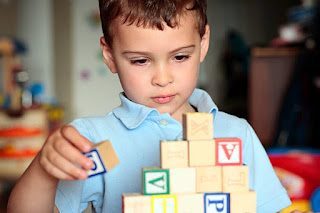TEN EARLY WARNING SIGNS OF AUTISM IN CHILDREN
Most instances of chemical imbalance range jumble aren't analyzed until age three anyway numerous kids show side effects as soon as 12 to a year and a half old. Once in a while, much prior here are 10 early admonition indications of chemical imbalance you ought to keep an eye out for as your kid creates 1. your kid has conflicting reactions: Babies with mental imbalance commonly have conflicting reactions to different sounds this implies they additionally experience difficulty perceiving their names now and again they don't answer sounds at all making their folks suspect that they may be experiencing hearing hindrances. 2. Your kid experiences issues with language: at a particular age, infants begin to prattle and answer language over the long run they begin to get words and figure out how to utilize them simply through openness, youngsters with mental imbalance might struggle with securing discourse by any stretch of the imagination at times they start to advance however at that point stop at one point of improvement. 3. Your youngster has incessant fits: Children with mental imbalance can undoubtedly blow up and pitch fits, this is particularly evident when there are even little changes to their daily schedule during these fits of rage, they can be challenging to support and probably won't answer any endeavors for solace. 4. Your youngster has fanatical interests: Children with mental imbalance range jumble will generally focus on specific things or show some strangely dull way of behaving in some cases this could be damaging, yet this is additionally the very quality that makes advanced mentally unbalanced kids become bosses of their picked fields. 5. Your Child experiences difficulty visually connecting: Making eye-to-eye connections is regular in any event, for children anyway youngsters with mental imbalance frequently find it hard to visually connect with others this is by and large viewed as a social impedance and could likewise be because they're as of now focused on something different. 6. Your kid experiences issues with joint consideration: joint consideration by and large affects following someone else's a sharp finger or look, youngsters with chemical imbalance normally struggle with doing this they likewise disapprove of social grinning where children will generally grin as a reaction to someone else grinning 7. Your youngster experiences difficulty with holding kids with mental imbalance range jumble experience difficulty holding with others they will generally be not interested within the sight of others this could be particularly baffling for the guardians when their kid doesn't appear to see they're even near 8. Your youngster has sporadic resting designs trouble dozing is a typical chemical imbalance warning however there are other rest-related signs too at times kids nod off rapidly yet awaken around midnight overall laying out a dozing pattern is more troublesome 9. Your youngster has ongoing gastrointestinal issues are normal among kids with ASD as per the Autism Speaks Organization youngsters with mental imbalance are multiple times bound to experience the ill effects of gastrointestinal problems contrasted and different youngsters a portion of these issues could remember clogging indigestion and the runs for certain cases youngsters experience the ill effects of gut irritation 10. Your kid has relapsing social engine and language abilities for certain purposes that still can't seem to be distinguished by analysts, youngsters with chemical imbalance can begin their way through the typical course of advancement and afterward begin to relapse this can be seen in the improvement of their interactive abilities as well as their engine and language abilities. Experts in the field of mental imbalance can't underline sufficient that early location is vital to appropriately focusing on kids with ASD encountering a couple of these 10 early admonition indications of mental imbalance doesn't consequently prompt a positive conclusion anyway these warnings can assist you and your pediatrician with noticing for different indications of improvement and begin early mediation if necessary.



0 Comments